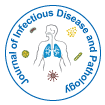Notre groupe organise plus de 3 000 séries de conférences Événements chaque année aux États-Unis, en Europe et en Europe. Asie avec le soutien de 1 000 autres Sociétés scientifiques et publie plus de 700 Open Access Revues qui contiennent plus de 50 000 personnalités éminentes, des scientifiques réputés en tant que membres du comité de rédaction.
Les revues en libre accès gagnent plus de lecteurs et de citations
700 revues et 15 000 000 de lecteurs Chaque revue attire plus de 25 000 lecteurs
Indexé dans
- Google Scholar
- Recherche de référence
- Université Hamdard
- EBSCO AZ
- ICMJE
Liens utiles
Revues en libre accès
Partager cette page
Abstrait
Disseminated BCG Infection after Intravesical Instillation in Bladder Cancer: Early Recognition and Prompt Treatment
Marco Distefano
Intravesical administration of Bacillus Calmette-Guérin delay tumor progression, decrease the need for cystectomy, and improve overall survival of non-muscle invasive bladder cancer. In immunocompetent patients, iBCG is usually well tolerated; but uncommonly, severe local and systemic complications can occur. Definitive diagnosis of BCG infection requires M. bovis BCG culture (of bodily fluids or tissue from involved sites) but the fastidious growth nature of BCG in culture and a doubling time of 24 to 48 hours contribute to the difficulty in its isolation. On suspicion of a systemic disease due to BCG, antituberculous therapy should be initiated. There are no clinical trials and no official guidelines regarding treatment, but as M. bovis is usually resistant to pyrazinamide and cycloserine, a regimen that includes isoniazid, rifampicin, ethambutol and a fluoroquinolone, such as levofloxacin, is usually administered for at least 6 months. In the setting of extensive miliary involvement and/or respiratory failure, the concomitant administration of glucocorticoids given the potential role of hypersensitivity in the pathogenesis of the disease, has been associated with clinical improvement in case reports.
Revues par sujet
- Agriculture et Aquaculture
- Biochimie
- Chimie
- Food & Nutrition
- Génétique et biologie moléculaire
- Géologie et sciences de la Terre
- Immunologie et microbiologie
- Ingénierie
- La science des matériaux
- Le physique
- Science générale
- Sciences cliniques
- Sciences environnementales
- Sciences médicales
- Sciences pharmaceutiques
- Sciences sociales et politiques
- Sciences vétérinaires
- Soins infirmiers et soins de santé
Revues cliniques et médicales
- Allaitement
- Anesthésiologie
- Biologie moléculaire
- Cardiologie
- Chirurgie
- Dentisterie
- Dermatologie
- Diabète et endocrinologie
- Gastro-entérologie
- Immunologie
- La génétique
- Maladies infectieuses
- Médecine
- Microbiologie
- Neurologie
- Oncologie
- Ophtalmologie
- Pédiatrie
- Recherche clinique
- Soins de santé
- Toxicologie

 English
English  Spanish
Spanish  Chinese
Chinese  Russian
Russian  German
German  Japanese
Japanese  Portuguese
Portuguese  Hindi
Hindi